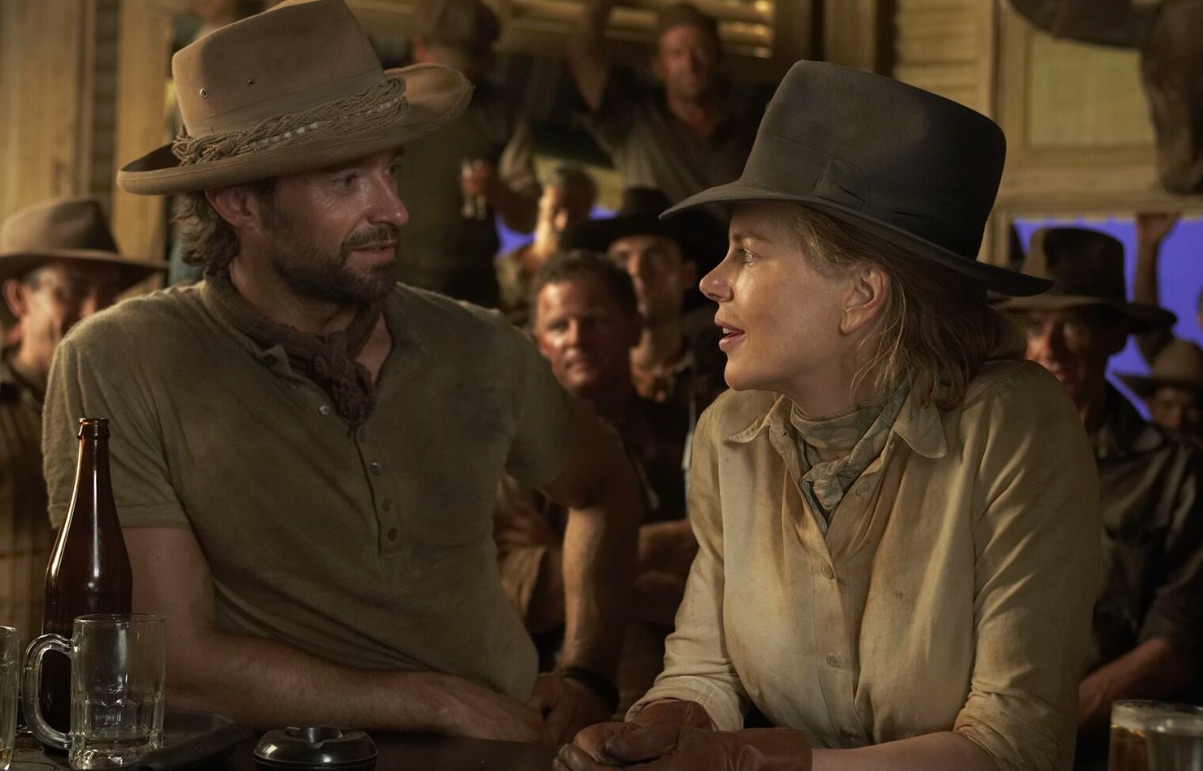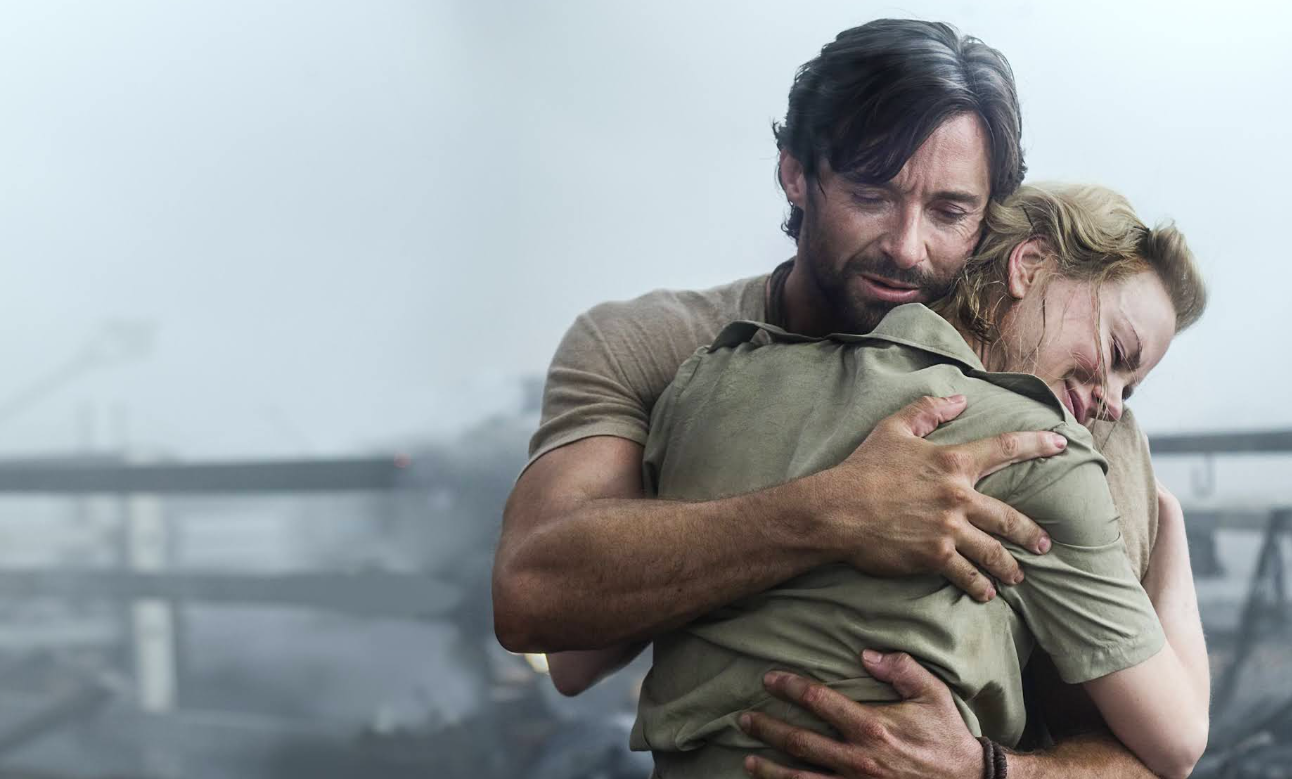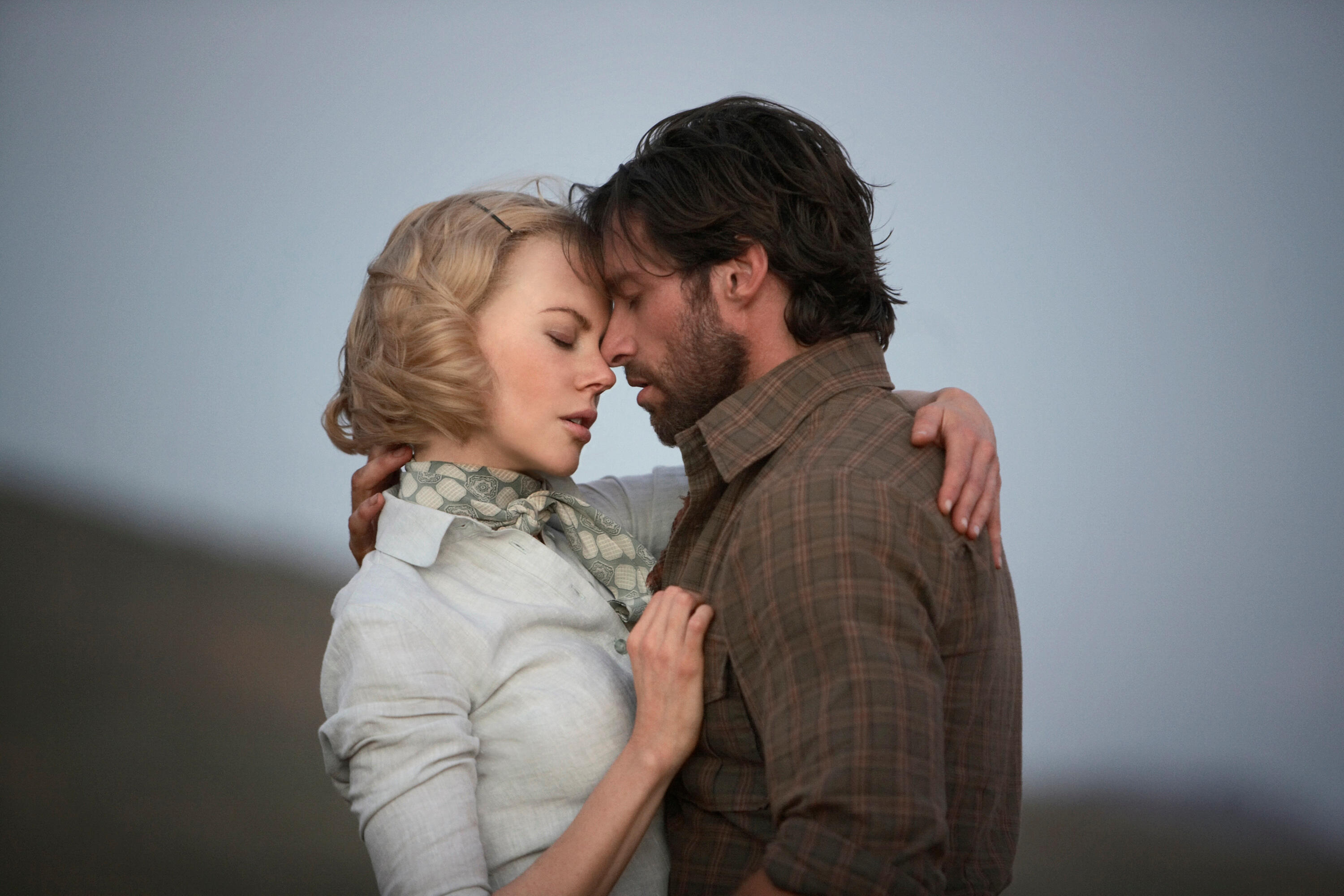Hulu’s ‘Faraway Downs’ brings back Baz Luhrmann’s 2008 film ‘Australia’ in a more expansive form to the audience. The film, starring Nicole Kidman and Hugh Jackman, follows Lady Sarah Ashley’s arrival in Australia, where she intends to sell her husband’s cattle farm. Things go in a completely opposite direction than what she’d set out to do, especially as she develops a bond with the Drover and a young boy named Nullah. ‘Faraway Downs’ follows the same skeleton of the story but has more meat on the bones as Luhrmann serializes the tale and adds the scenes that were cut from the film. The most important distinction between the two, however, is the ending. SPOILERS AHEAD
The Ending of Faraway Downs is What Luhrmann Originally Wanted
In ‘Faraway Downs,’ Lady Sarah Ashley had hoped to get the affairs in order and leave Australia within a week of her landing in Darwin. She didn’t expect all that would come next and how she’d stay there for two years and then for the rest of her life, making Faraway Downs her home as opposed to selling it away. The same thing happens in ‘Australia’ too, but the film has a much happier ending than the show.

In the movie, Sarah and the Drover save Nullah from Mission Island and bring him back home to Faraway Downs. The boy, however, leaves them to go on the walkabout with his grandfather, as dictated by the customs of his people. Sarah and the Drover bid him goodbye together, waiting for his return to Faraway Downs, where they live together for the rest of their lives. This is the beginning of their happily ever after. In ‘Faraway Downs,’ however, things are a bit bleaker.
After Sarah, Nullah, and the Drover are reunited in Darwin, they let their guard down and prepare to go back home together. However, Neil Fletcher, who hated them, especially Nullah, from the beginning, wants to destroy them, especially after his wife dies in the bombing. He blames Nullah for ruining everything and points a gun at him. Fletcher is killed by Nullah’s grandfather, but not before he fires the shot. It doesn’t hit Nullah but is taken by the Drover, who shielded the boy from harm. He bleeds out on the spot and dies. Sarah and Nullah return home, and when he is called by his grandfather, Sarah watches him leave all by herself.
According to Luhrmann, this was supposed to be the original ending of ‘Australia,’ where Fletcher’s shot doesn’t hit anyone and the Drover gets a happy ending too. He felt it to be more in line with the theme of the film. “I felt that the underlying theme, which is you really can’t own anything, you can’t really own land, you can’t own a child – you can curate it, but you can’t own it. The only thing you really own is your story, and so you better make sure you’re living a good one,” he said.

Despite Luhrmann’s intentions, the ending didn’t seem to sit well with the timing of the film’s release. Explaining the circumstances, the director said: “There was a huge financial crisis [in America], I remember that. There was a real shift in the spirit of the world, there was a sense of deep insecurity and fear. I just remember that feeling, and I was somewhat calibrating what I was doing to the audience’s feelings at the time. I was running back and forth sort of engineering the ending, and there was just such a negative spirit out there that the conclusion I came to was, ‘Ah, you know, maybe it’s just too tragic.'”
Luhrmann didn’t want the audience to go back home with a broken heart, so he decided to perk things up by keeping the Drover alive. However, when he decided to bring the story back in an episodic form, his first instinct regarding the ending returned, and he decided to go forward with the Drover’s demise. This, however, doesn’t mean that he thinks the ending of ‘Australia’ is wrong. According to him, ‘Faraway Downs’ has more space to explore the story and it gives the audience more time with the Drover and Sarah and Nullah, giving them more time to think about how the ending feels right for the characters.
With the world having survived a pandemic, which is when Luhrmann went back to ‘Australia’ and redid it to make it into a TV show, he thought that the audience was better equipped to handle the tragic turn of events. “I think that what sustains in the story is no matter what happens, in the end, you can’t control anything. So, live a great story. Live a great life. Don’t cower in fear, don’t shrink backwards,” he said.
Read More: Is Nicole Kidman’s Lady Sarah Ashley Based on a Real Person?

